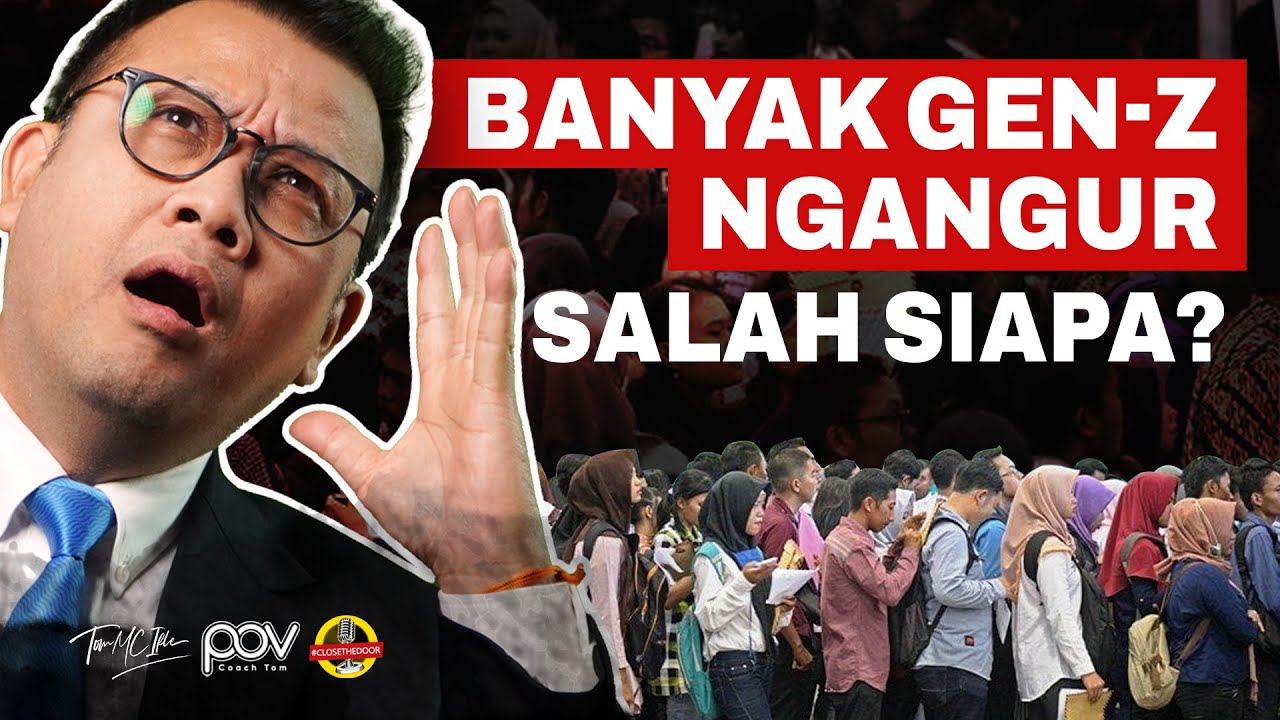Geração nem nem: Por que os jovens não querem mais trabalhar e nem estudar?
Summary
TLDRThe video explores the struggles faced by today's youth in Brazil, particularly regarding education and employment opportunities. The speaker discusses the societal blame placed on different generations, arguing that understanding the root causes of these issues is more productive than assigning blame. They emphasize the lack of real incentives for education in low-income families and highlight that individual success stories, while inspiring, are exceptions rather than the norm. Throughout, the speaker engages the audience, inviting personal reflections and interactions, while expressing gratitude for their support and encouraging constructive dialogue about the challenges of modern life.
Takeaways
- 😀 The Brazilian education system faces significant challenges, particularly in low-income areas.
- 😀 Many families lack the resources to provide meaningful educational support to their children.
- 😀 There is a generational blame game, where younger individuals are often criticized for not working or studying.
- 😀 Success stories of individuals overcoming adversity are often seen as exceptions rather than the norm.
- 😀 The speaker emphasizes the importance of role models in encouraging education, not just verbal encouragement.
- 😀 Economic mismanagement is identified as a root cause of broader societal issues in Brazil.
- 😀 The speaker highlights the disparity in educational outcomes and the high rates of functional illiteracy in small towns.
- 😀 There is a call for understanding the underlying societal issues rather than blaming specific generations.
- 😀 The speaker encourages audience engagement and feedback, indicating the importance of community discussion.
- 😀 Membership options for viewers are promoted, emphasizing the value of community and exclusive content.
Q & A
What is the main issue discussed in the video?
-The video addresses the challenges faced by the youth in Brazil, including lack of education, job opportunities, and the generational blame placed on young people.
How does the speaker view the role of families in education?
-The speaker believes families often lack the means to provide real incentives for education, emphasizing that encouragement must go beyond verbal advice.
What does the term 'geração neném' refer to?
-'Geração neném' refers to the current generation of young people perceived as being dependent and not actively engaging in work or education.
What examples does the speaker provide regarding exceptions in educational success?
-The speaker mentions isolated cases, like a construction worker's daughter becoming a doctor, but stresses that these are not the norm and should not be seen as a standard.
What underlying societal issue does the speaker suggest needs to be addressed?
-The speaker suggests that instead of blaming a generation, it's important to understand the root causes of these issues, which he refers to as the 'disease' rather than the 'symptom.'
What role does the speaker believe social media plays in these discussions?
-The speaker encourages engagement through social media, asking viewers to comment on their experiences and share their perspectives, which fosters a community dialogue.
How does the speaker feel about Brazil as a country?
-The speaker expresses a positive sentiment towards Brazil, indicating that despite the challenges, he appreciates living there.
What call to action does the speaker make regarding channel engagement?
-The speaker urges viewers to subscribe to the channel and engage with the content, suggesting that their participation is valuable for the channel's growth.
What support does the speaker offer to his channel members?
-The speaker thanks channel members for their support and highlights the benefits they receive, such as exclusive content and personal interaction.
What question does the speaker pose to viewers at the end of the video?
-The speaker asks viewers to reflect on their own situations, whether they are studying or working, and to share their thoughts and feelings in the comments.
Outlines

Этот раздел доступен только подписчикам платных тарифов. Пожалуйста, перейдите на платный тариф для доступа.
Перейти на платный тарифMindmap

Этот раздел доступен только подписчикам платных тарифов. Пожалуйста, перейдите на платный тариф для доступа.
Перейти на платный тарифKeywords

Этот раздел доступен только подписчикам платных тарифов. Пожалуйста, перейдите на платный тариф для доступа.
Перейти на платный тарифHighlights

Этот раздел доступен только подписчикам платных тарифов. Пожалуйста, перейдите на платный тариф для доступа.
Перейти на платный тарифTranscripts

Этот раздел доступен только подписчикам платных тарифов. Пожалуйста, перейдите на платный тариф для доступа.
Перейти на платный тарифПосмотреть больше похожих видео
5.0 / 5 (0 votes)






